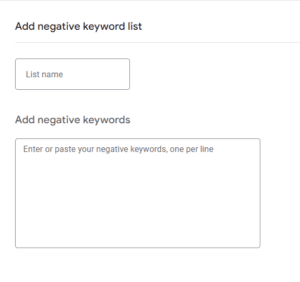Are you panicking about the fate of your PPC campaign during the recession? Chances are, the answer is yes. While the recession itself is unavoidable, the downward spiral of your eCommerce sales and PPC advertising certainly is. There are plenty of ways to keep your campaign thriving so you won’t feel as if you’re just treading water.
You may be looking to cut costs during this period of economic turbulence, or wanting to simply just survive. There are ways to optimise your PPC budget cleverly so that you can get the most out of your campaign despite these tough circumstances. Worry no longer, as we’re here to give you some ideas for how to thrive, not just survive, during a recession.
At Embryo, our PPC consultants make the most of PPC budgets, investing in what matters by approaching campaigns efficiently. Even within economic difficulty, we’ll make sure you reach customers and turn clicks into conversions. Get in touch to find out more.
So, what can you do?
Economic fluctuations are inevitable, but if you know what to do in times of uncertainty, then you have no reason to fear it. Instead of putting your PPC on a complete pause, there are ways to work around a recession and still see an increase in sales. Here are some things to consider:
—

Not just businesses will be struggling with economic change, but consumers will be too. Customers may be more choosy with how they spend their money, so it’s even more important to try and reach your audience and sell yourself. Tell them why they should be investing in you, even when times are hard.
Tracking spending patterns allows you to tune into what people are looking for and how they are spending. For example, more and more purchases are being made via mobile, so optimising your ads for mobile phones is so important. Pairing this with things like mobile SEO or using SEO data alongside also allows you to pick the right keywords for your copy and target those users who are likely to choose your product.
—

With consumer spending on a potential decrease and PPC budgets becoming tighter, you’ll want to adjust your bids accordingly. Prioritise what you want to bid highly for, such as for those keywords that drive high conversion rates.
During a recession, there’s a lot of uncertainty surrounding CPC (cost per click). PPC consultants will be competing more for those all important keywords, and you need to decide what becomes worth bidding for in order to spend your budget wisely. Perhaps utilising auto bidding is best for you, and you can adjust its goals for whatever will drive you the most sales.
—

Utilising negative keywords is a smart way to reduce the amount you’re spending on your campaign. Your budget is efficiently spent on clicks that matter. With negative keywords, you’re essentially able to eliminate keywords that are irrelevant to your ad and business. Therefore, the customers who see your ad have actively searched for what you offer, leading to a higher amount of conversions.
When applying a negative keyword list to your campaigns, you then won’t appear for any searches that include those words and phrases. Saving money during an economic downturn is essential- you avoid paying for those wasted clicks and gain clicks that will actually convert. Staying relevant is key. By helping your CTR (click through rate), and reducing wasted spend, negative keywords are the gift that keeps on giving.
—

As touched on above, eliminating any wasted spend is key during a recession. So much of your budget could be being spent on search terms that don’t even convert. Focus on terms that convert and base your ad copy around this. This allows for a more focused approach to your PPC campaign that can save both time and money.
Monitoring your campaign, such as carrying out search term reviews, can help you identify areas where cutting costs are possible. Keep on top of your budget so you can maximise its worth, which is especially important during a recession.
—
Google with its never-ending knowledge often offers a list of recommendations for your campaign and this can be found in Google’s recommendations tab. Performance can be increased but without an increase in spend- this could not be more perfect for these circumstances.
However, some recommendations are better than others in terms of cost. Suggestions in experiments and campaign changes can take your advertising a long way, and recommendations for keywords and ads are likely to have positive change. But things like ‘bids and budgets’ suggestions are best to avoid. You don’t want to pull any risky moves in a time of economic uncertainty.
Key takeaways
So, now you know how to thrive, not just survive, in a recession. It can be easy to lose all hope and lose sight of your campaign goals when faced with an uncertain future, but it’s essential to remain hopeful and take action. Remember, it’s still possible to increase sales and conversions even in times like these.
If you’re unsure on what to do with your PPC campaign, we’d be happy to give you a hand! Or, if you want to know more about PPC in general, take a look at our helpful blogs below for important insights into the PPC world.
FAQs
Answered by Tom McGuigan
Should I be using recession spending tactics all throughout the year?
Follow the data. If you can spend more and revenue/conversion performance follows those spending increases, then go for it. If not, a more reserved approach may be better
Do I need to directly address tough times in my PPC ad copy.
I wouldn’t necessarily directly address “tough times”, but using language that’s sensitive to the times people are in may be the best approach.
Is a specific or broad approach better during a recession?
Instinctively I’d say that a more specific approach is better, as when people are short on money, spending your own money on more speculative search terms may lead to wasted spend.
Is advertising in a recession about minimising risk?
Minimising risk but also being aware of opportunities that may arise. Competitors may be reducing spend in certain high-performing areas that you may be able to move into to capture more market share.












